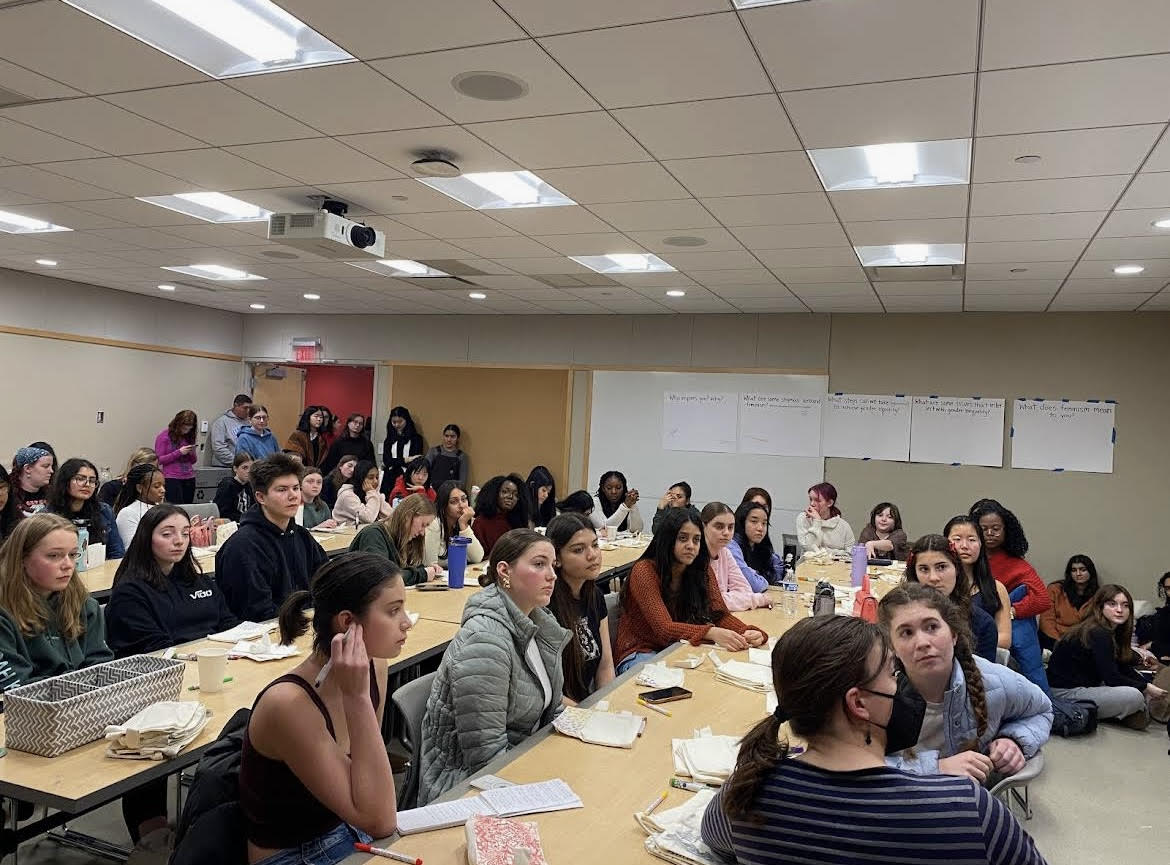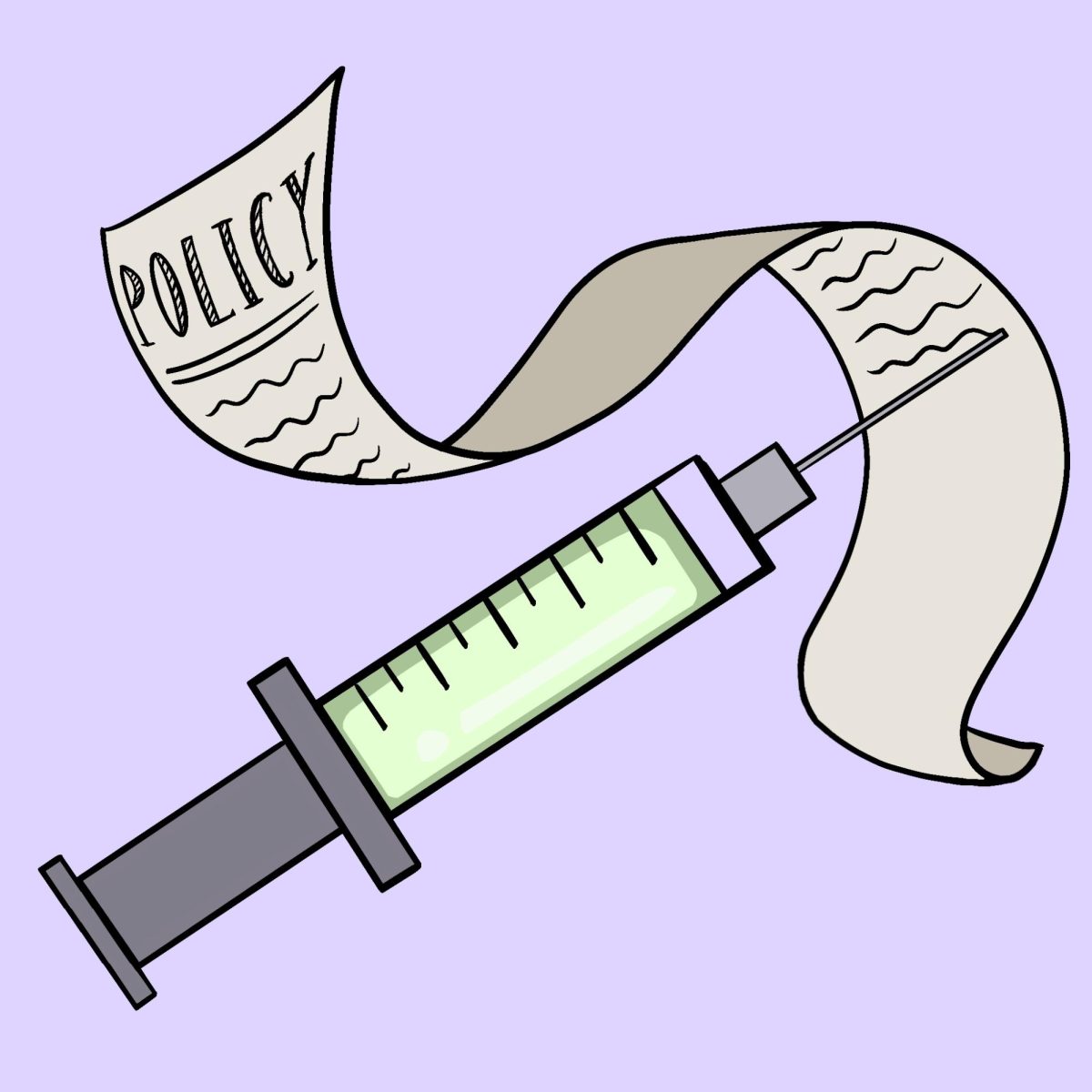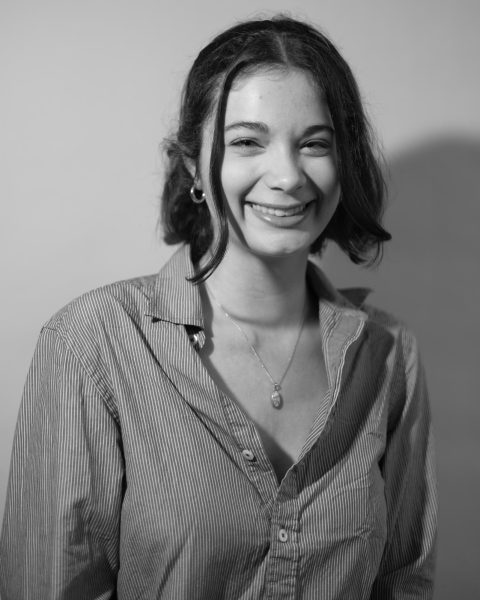On March 2, 2024, more than 70 people gathered in the basement of the Cambridge Public Library for Girl Up New England’s 8th annual summit. This year’s summit focused on menstrual health equity at both an international and local level. The co-presidents Ilinca Drondoe and Lana Mello opened the event by welcoming attendees and introducing the agenda for the day. “We are here to make a community and make a difference,” Mello told the audience.
This year’s summit welcomed a variety of local speakers including Massachusetts Senator Patricia Jehlen, former Mayor and current City Councillor Sumbul Sidiqqui, and a panel of Girl Up members. The event was arranged in partnership with the company Fhiri, which works to combat period poverty around the world.
Period poverty is a lack of access to menstrual products. This can impact every area of someone’s life, including work, education, and much more, according to the University of Michigan.
The main activity on the agenda was assembling environmentally sustainable period kits for women in Gaza. According to a report by the United Nations, nearly 700,000 girls and women in Gaza are managing their menstrual cycles with little to no access to pads, tampons, and clean water. “The atrocities in Gaza weigh heavily on us,” Councillor Siddiqui said. “We cannot turn away.”
Ceylan Rowe, the founder of Fhiri, delivered an emotional speech about period poverty in Gaza. “The women are in desperate need of everything,” she said. Each period kit assembled at the summit was stuffed with environmentally sustainable pads, and decorated with messages of love, hope, and support. Rowe explained that Fhiri is working in partnership with the Palestinian Medical Society to get the kits into Gaza. Once assembled, she will drive them to JFK airport in New York, where they will be shipped by Jordanian Airlines.
The summit also focused on addressing period poverty at a local level. Here in Cambridge, over 10% of 132 CRLS students surveyed by the Register Forum in October 2023 have had to miss school due to the cost and accessibility of menstrual products. Recently the district has installed new Egal pad dispensers in the women’s restroom to combat these issues.
Many on the activist panel expressed how the amount of stigma surrounding menstruation often shuts down conversations about it, leaving menstruators confused and ashamed of their bodies. “42% of women in the U.S. experience period shaming,” said activist Ashmita Prajapati ’25. “We have institutionalized that there is something defective about our bodies.” One of the leading causes of the stigma is lack of education. “We need to start including curriculum and standards that surround menstrual hygiene,” Danielle Marrocco, a member of the Girl Up New England Advocacy committee, told the Register Forum. “There’s also an emphasis on the sort of language we use; not everyone who identifies as a woman menstruates,” she said.
Another topic addressed during the summit was a variety of menstrual disorders, which are often left out of menstrual health education. Conditions like endometriosis and PCOS impact anywhere from 14 to 25% of menstruators, according to the NIH. Senator Patricia Jehlen, lead sponsor of the proposed I AM bill, which would increase access to menstrual products in prisons, homeless shelters and schools, told the Register Forum “[lets] get comfortable with our bodies and not be scared… It’s very inspiring to see a whole generation of people coming forward to lead.”
This article appears in our March 2024 print edition.














